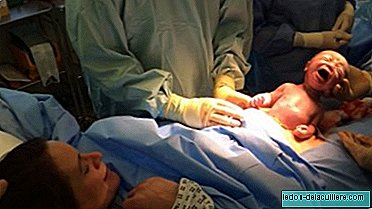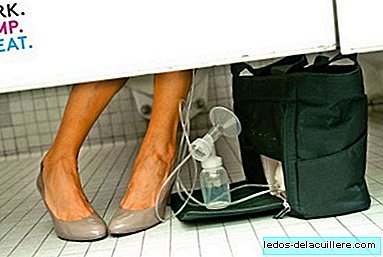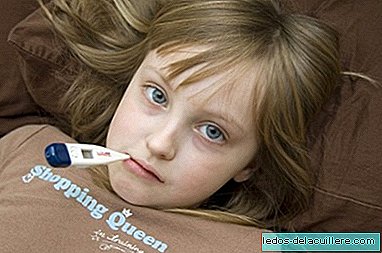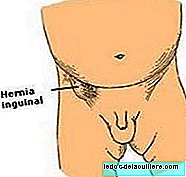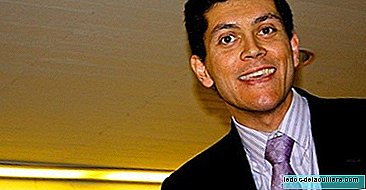
Antonio Fumero is Telecommunications Engineer from the Polytechnic University of Madrid (UPM)He is also a researcher at UPM and an independent consultant. Antonio presented in December 2012 his doctoral thesis called Development of a technocultural framework for a sociotechnology of information and culture, with application in the field of higher education for the training of infoprofessionals. It is a work that has been directed by the professor and professor emeritus Fernando Sáez Vacas and can be seen, the presentation and the thesis, in the links indicated at the end of the article. Fernando Sáez Vacas indicates that the infotechnological infrastructure is transforming the way we interact in the economy, education, knowledge, the media, culture, the health system, etc. and for example, relationships between humans are also changing as can be seen by the success of social networks on the Internet.
So to know more details of this impact of the use of information technologies and specifically how training and education is changing, we present an interview with Antonio Fumero so that we can learn more about the needs of the "infociudadano" and how he lives in a conscious and responsible way his relationship with technology in the social techno environment.
What is a technocultural framework for a sociotechnology of information and culture and how it develops
It is a set of conceptual tools, systemically based, which aims to consolidate a certain (technocultural) approach to what we call the New Tecnosocial Environment (NET). Its development is based on two fundamental axes: the systemic approach and its inter and multidisciplinary nature.
This approach is based on the conviction that "technology in general and infotechnology in particular constitute a real part of the culture, but that integration is still to be developed formally and intellectually", in the words of Fernando Sáez Vacas.
Why this project, focused on education, arises in a School of telecommunications engineers
Although the project is much broader, its educational application arises in the field, already very developed, of "educational technology", although transcending the traditional instrumental implementation to which we have dedicated engineers.
The approach of the work was to show how systemic-based initiatives developed by engineers could yield results comparable to interventions that started from educational psychology.
What experiences exist in Spain and in other countries of implantation of this type of models
This is not an educational model that can be "implanted" anywhere. It is about providing professionals who dedicate themselves to designing educational interventions, at different levels and areas, a series of sociotechnical tools that incorporate this technocultural approach.
Experiments of different types and different scope have been carried out, and carried out based on the theoretical contributions of great figures of the system, such as Edgar Morin (Multiversity) or Ivan Illych, who inspired many with his "De-School Society". Some related aspects are developed in Science, Technology and Society forums and initiatives that try to recover certain common places of social constructivism proliferate artificially by associating them with some more or less popular tools, such as social networks. But there is no systematic effort to consolidate, as a single and consistent theoretical framework, the elements that we have related in our work as an integral part of a STIC.
Although the focus is higher education, how it could be applied to nursery and primary school
As an educational project, the development of a STIC as a discipline with its own entity is ambitious. Although its initial focus would be the formation of a certain type of our engineers, infoprofessionals in general, its extension is contemplated in the generic formation of a type of "infociudadano" that increasingly needs to consciously and responsibly live its relationship with technology that NET.
The educational model must be changed or this Framework could be adapted to the current situation
As I said above, this framework is not intended to be an alternative "model", but to introduce elements that can serve the professionals who design and manage those educational models; although its development may constitute certain sociotechnical tools for direct use in certain more or less innovative models.
What technological infrastructure needs are necessary to implement this Framework
With regard to technology itself, what this framework provides are conceptual instruments to understand and internalize the Humanity-Technology co-evolution process that Fernando Sáez Vacas advocated years ago, as well as its consequences in both directions. In other words, how we develop that infrastructure and how our intense relationship with it has changed our own capabilities.
What training needs do the participants in the educational community have: teachers, parents, students, ICT coordinators, etc.
The training needs and the instruments to provide them will be different although the generic objective must be common: to develop intellectual and formally that patent integration between technology and culture, between sociotechnology, information and culture.
Someone, from the public administration or private initiative, has contacted you to explain the project
No. It is an ambitious project, in the medium or long term, that requires a certain commitment for its endowment with minimum operational resources, in an area such as education, which is clearly subject to political ups and downs.
How can the proposed model be profitable in schools
One could argue about the "profitability", in terms of social innovation, of the integration of certain characteristic elements of that ICT. While it is unlikely that the viability of its implementation can be argued from a purely economic point of view, it is true that, at least a priori, the design based on certain basic elements of the proposed framework is likely to avoid the instrumental use of the infotechnologies in our schools and that, therefore, that had some positive effect in the short and medium term on the financial resources dedicated to the purchase and amortization of "technology". But, I insist, these are decisions that, in most cases, are taken in political instances.
And here the interview with Antonio Fumero. I want to thank you for the generosity to explain some of the details of your doctoral thesis, awarded with the highest rating, and I congratulate you on the brilliant work of compilation, analysis and especially of the model on which to build and evolve.
In the book-thesis that he gave me to document me it can be read that the instrumental development of this general theory will necessarily be linked to the design and development of educational processes by programming different actions with different levels of effort that will allow move from information to specialized knowledge for a STIC profile (SocioTechnology of Information and Culture) which will also be necessarily multidisciplinary.
And to try to put in context this model proposed by Antonio, I also copy some paragraphs from the Book-Thesis in which it is mentioned the power of play in learning and how it can be applied in children (It is a fragment of the column called Compujuegos published in PCWEEK in 1992) by Fernando Sáez Vacas:
It is notorious that the game enhances learning. It is no less that the world changes and with it the capabilities that our polyhedral intelligence needs to deploy, to, among other tasks, allocate resources, evaluate information, understand the operation of systems, face new technologies, develop interpersonally. Solloway argues that the Nintendo generation, today's children, increase through computer games several of those capabilities. Penrose has written that his mathematical thinking is organized visually, diagrammatically and nonverbally, very similar to games. A line of research aims to create educational tools more similar to computers than books, because a personal computer interacting with a video disc opens infinite horizons. It is a fact that current simulators in the market are better than those used by the professional military a decade ago. And programs such as Palenque (multimedia exploration for the Mayan kingdom), or as SimEarth (simulation of the Earth-living planet), annihilate the role of schools as transmitters of knowledge and skills.
And finally, an explanatory graphic of the proposed model also extracted from the Book-Thesis that Fernando Sáez Vacas and Antonio Fumero have carried out:

This chart shows some of the functions necessary to participate in the control of multiple and varied social and cultural changes in human activities and forms within the New Tecnosocial Environment (NET), from the infotechnologies that constitute the immense and complex Universal Network Digital (RUD).
In practice, these changes can be called technological innovation, as we have done in several economic and educational cases. We live in a digital era (rather today: it was CDIC) and it is necessary to work professionally to create a somewhat encyclopedic base in the area called SocioTechnology of Information and Culture (STIC) with a broad, structured and informative set, supported by two factors fundamentals of technosocial intelligence: the broad knowledge of complexity, which includes the sociotechnical complexity, and the intermultidisciplinary mental approach, accepting that these must be detailed when participating with the knowledge of said base in specific applications of a technosocial nature.
Access to the doctoral thesis of Antonio Fumero on Educational Technology
Access to the video of the defense of the doctoral thesis at the Polytechnic University of Madrid


